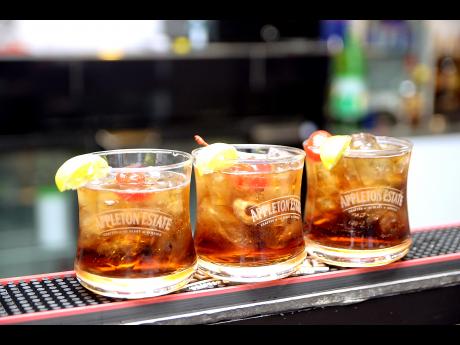Aged spirits drives Jamaica rum sales higher
Distribution of the newest line of Appleton Estate aged rum pushed Jamaican spirits sales globally beyond €62 million over nine months, according to the brands owners, Campari Group.
The drive for increased aged rums came during a period when the Italian group restructured some of its major rum-producing markets, which included closure of the Sorocaba plant in Brazil and the closure of two sugar estates in Jamaica.
Jamaican rum sales, which include Appleton and Wray & Nephew products, accounted for 5.2 per cent of the €1.2 billion in net sales reported by Campari in its nine-month financial results released this week.
Campari tracks exchange rate movements of all its overseas ventures as most of its production is based in developing countries with floating exchange rates. Its results for Jamaica were translated at a rate of $158.98 to the euro.
In September, the Appleton Estate 30 Year Old Jamaican Rum was released to 16 global markets as well as to the global travel retail channel.
"This rare rum blend is a tribute to the unparalleled aged rum inventory we possess in Jamaica," said the spirits company. "Our 30 Year Old rum, although younger, does include rums up to 50 years old from the very same barrels used for the 50 Year Old blend. All rums in the blend are at least 30 years old."
The Appleton Estate 50 Year Old Jamaican Independence Reserve Rum was introduced globally in 2012 to com-memorate Jamaica's 50 years of independence.
Campari's local subsidiary, J. Wray & Nephew Limited, closed two estates, Holland and Casa Marantha in St Elizabeth, that grow sugar cane, but continues to operate other sugar assets, led by its famed Appleton Estate, also based in St Elizabeth.
"Its aim is to close two operating sites for the cultivation and production of sugar cane. The reason behind this decision is to minimise the losses generated in the sugar business, but it is also driven by the general trend in commodity market prices," said Campari, while asserting its continued commitment to the sugar sector.
For the September quarter, the Italian group made net profit of €90.7 million on revenues of €422 million. Over nine months, the group made €235.5 million profit on revenues of €1.2 billion. Profit rose 4.5 per cent for the quarter and 4.8 per cent for the nine-month stretch.

